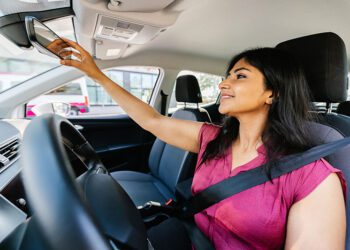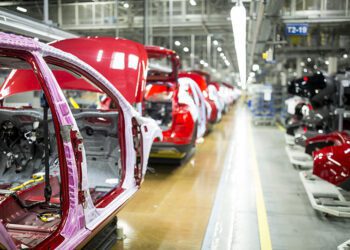In today’s digital age, where everything from your refrigerator to your wristwatch is ‘smart’, why should cars be any different? As India stands at the cusp of an automotive revolution, connected cars are driving the change. “When automobiles converse with technology, roads become not just pathways but information highways.”
1. What are Connected Cars?
Definition: At its core, a connected car is a vehicle equipped with internet access, allowing it to share data with devices both inside and outside the vehicle.
Integration: Through a mix of sensors, AI, and IoT, these vehicles can communicate with other cars, traffic management systems, and even your home appliances.
2. Features and Benefits of Connected Cars
Safety and Navigation: Advanced driver assistance systems (ADAS) can warn drivers about potential collisions, ensure lane discipline, and even automate parking.
Entertainment and Connectivity: Seamless integration with smartphones and other devices means personalized entertainment, real-time updates, and even remote control of certain car functions.
Diagnostics and Maintenance: With real-time monitoring of vehicle health, connected cars can predict when they need servicing, reducing the risk of sudden breakdowns.
3. Challenges at the Crossroads
Data Security: With cars becoming another node in the internet landscape, they are vulnerable to cyberattacks, making data security paramount.
Infrastructure Needs: For the seamless operation of connected cars, especially in terms of vehicle-to-vehicle (V2V) and vehicle-to-infrastructure (V2I) communication, robust and modern infrastructure is essential.
Standardization: With multiple manufacturers entering the connected car space, there’s a need for standardized protocols to ensure interoperability.
4. India’s Drive Towards Connected Cars
Rising Demand: The urban Indian consumer, tech-savvy and environmentally conscious, is showing an increasing appetite for connected car features.
Industry Initiatives: Indian automakers like Tata Motors, Mahindra, and Maruti Suzuki are incorporating connected features in their new models, in collaboration with global tech giants.
Policy Framework: The Indian government is actively working on regulations to promote the safe and efficient deployment of connected car technologies.
5. The Road Ahead
As 5G networks roll out and become more mainstream, the capabilities of connected cars will expand manifold. From entirely autonomous driving modes to vehicles that can ‘talk’ to each other to manage traffic flows, the possibilities are limitless.
Conclusion
Connected cars symbolize the fusion of traditional automotive engineering with cutting-edge digital technology. As India accelerates into the future, these vehicles promise not just smarter commutes but also safer roads, reduced emissions, and an enhanced driving experience. The journey of a thousand miles, it seems, will soon be a connected, AI-driven affair.




















